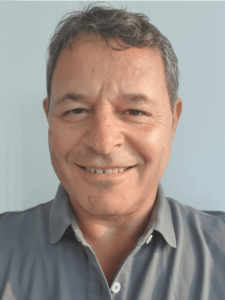Seminar 8: “Research Gaps and Research Needs in the Field of Medicine and Public Health – The Missing Opportunities in Cyprus”
The seminar is to introduce participants to the science behind the future of infectious diseases, examples of successful strategies and opportunities for research in the biomedical field. Gaps in power and research technology between the various human societies originate most probably primarily in environmental differences, which are amplified by various loops of ignorance and underestimation of the future of infectious diseases.
In the long history of the human evolution the importance to the transition from hunter-gatherer to city-dwelling agrarian societies was the presence of domesticated animals, raised for meat, work, and long-distance communication. The real threats and the future of infectious diseases in today’s societies will be largely influenced from the climate changes, wild animals, water, food, airborne and biosolid transmission. These factors will be decisive for the occurrence of pandemics as a natural phenomenon related to environmental changes and globalization.
Routine diagnostic and surveillance systems are an important part of public health systems against infectious diseases. They have the power to prevent outbreaks and save lives. Various germs (viruses, bacteria, parasites) are included in the routine diagnostic, however, with many limitations. The apparent disease burden of pathogen infections and related research of infectious diseases in Cyprus is largely missing. Governmental monitoring and mandatory reporting would be essential for the control and prevention of outbreaks in the country. The burden of these pathogens in the environment will have an influence in everyday reality and they will have definitely a negative impact on the economic prosperity and public health in any country as exclusively confirmed by the COVID-19 pandemic. Air- and vector-borne transmission, water and food contamination, wild and domesticated animal contact, as the sources of infection and, thus, their impact on disease epidemiology in Cyprus, clearly indicate the need for research strategies and the implementations of control measures to avoid outbreaks.
Presenter
 Prof Panagiotis Karanis
Prof Panagiotis Karanis
Director of Anatomy Centre, Medical School
A resourceful and dedicated professor with an outstanding academic background, excellent publication record and significant teaching experiences in the fields of Human Anatomy and Infectious Diseases. Established worldwide collaborating in a productive and successful team and thrives in challenging environments. PhD and habilitation at the University of Bonn in Germany, Professorships at the Medical Faculties of Bonn and Cologne Universities in Germany, at the National Research Center of the Obihiro University in Hokkaido in Japan and of Qinghai University in Xining, China. In China invited by the Chinese Government, and successfully completed the 3-year ‘1000 Talent Program’, for which he was invited as ‘Foreign Expert’ by the Chinese government. Developed and established the Center for Biomedicine and Infectious Diseases’ in the Tibetan Plateau Area in the Qinghai Province, which has been promoted to the ‘State Key Laboratory of Qinghai Province’ in China. Since September 2019, Professor of Anatomy and Director of the Anatomy Institute and Coordinator of Unit of Anatomy and Morphology at the University of Nicosia Medical School.
All years have been characterized by his continuous progress and a long list of accomplishments in research, teaching, and different academic positions with persistent motivation for further challenging roles with enthusiasm and professionalism. An international advisor at organizations and universities worldwide. Contributing to combat emerging and neglected diseases which continue to challenge our everyday life. Working under the approaches of the ‘One Health Concept’ and taking in consideration demographic movements, geographic, climatic, environmental, agricultural, and globalization characteristics
This seminar is part of the Research Skills Development Programme (RSDP) series. For more information visit https://www.unic.ac.cy/research-skills-development-programme/




